With the first Game of Thrones Season 6 retrospective up on the site, and casting news for Season 7 just starting to roll in, it seems that my critiquing this show is not going to be limited any time soon. So imagine my embarrassment when someone asked me how I feel about the shows that are often compared to it, such as The Last Kingdom, Outlander, Vikings, or Black Sails, and I wasn’t able to give an answer since I watch…none of these. Therefore I set out on a mission to correct that failing right away, starting with the show where I was promised bisexual pirates.
Bisexual pirates did I get from this Starz series, and quite the rollicking band at that. Black Sails does a phenomenal job at establishing the context immediately, both with its opening “historical” crawl (or slide, really) that explained the pirates’ labeling as “hostis humani generis”, and its decision to put us onto an British ship that we just knew was going to get taken by the pirates. It was fear-inducing, but in a good way, and when the charming dude hiding from the fight announced himself as “John Silver”, I actually fangirled at my screen.
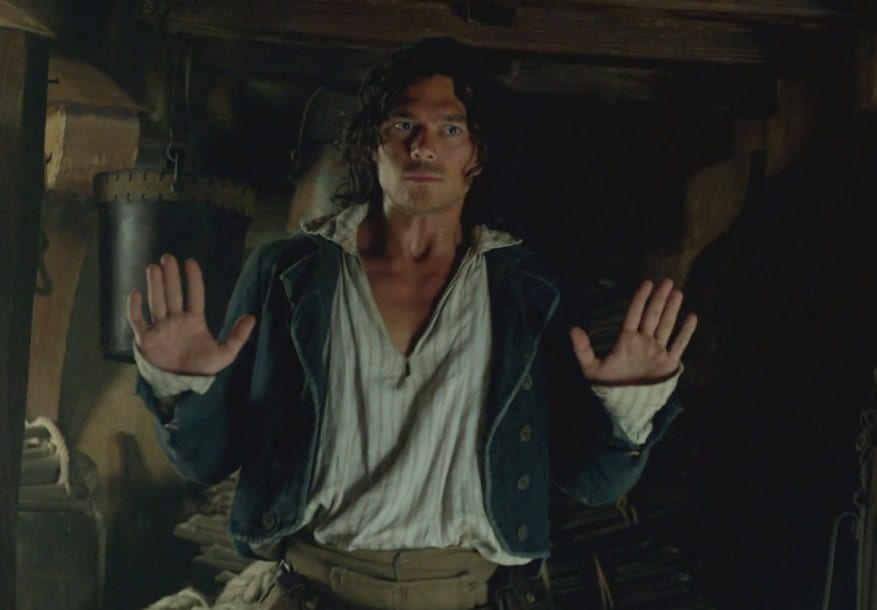
We’re also quickly introduced to the stakes of the season. We don’t need to spend much time in Nassau to get a sense of how things are run at this New Providence Island port town. Richard Guthrie is one of the wealthiest black marketeers/fences around, and the reason trade thrives in Nassau, though it’s really his daughter Eleanor running the front-end of this smuggling business, and resenting how her father is the ultimate authority when she’s kind of doing everything. This is all underscored by the constant threat that the British will stop turning the other way on this and shut everything down.
Oh, and there’s also competing pirate gangs. The guys we follow and root for are led by James Flint, who has something of a legendary reputation, but hasn’t been doing so well in terms of plunder recently. However, Eleanor thinks he’s a nifty investment, so yay. Then there’s also Charles Vane, who from what I can tell is a piece of shit, but he looks great with a shirt off, so I suspect a good number of people make excuses for him.
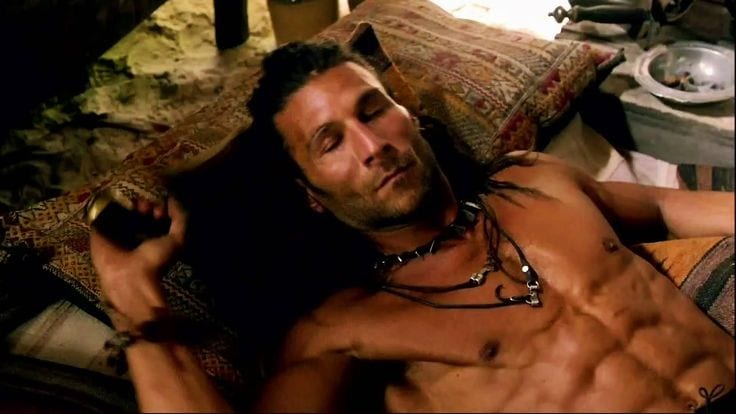
Eleanor and Vane were together in the past so there’s lots of crackling tension.
Vane’s entire crew also all seem like assholes, at least the ones that stay loyal to him during the events of Season 1. But he’s got Jack Rackham (Calico Jack) and Anne Bonny with him. Thanks to my deeply-rooted pirate nerd excitement, which to be honest I didn’t know I had, I want only nice things for them, despite the fact that they serve the worst captain ever. Plus the way Jack is portrayed is just kind of awesome—you’ll love him.
Eleanor has a girlfriend, by the way: a sex worker named Max who’s quite sharp and ambitious. The brothel itself is an important business in Nassau, and it seems like it will be integral to future seasons as well. At times it serves as a front for smuggling deals to go down, but I think what I have to appreciate most about it is that the sex workers are given a crap-ton of agency. Like, to the point where they’ll try and take advantage of a gullible new brothel owner, or actually curse off anyone who interrupts them when they’re with a client and thus costs them their wages. After Game of Thrones, seeing sex workers who aren’t reduced to mere punchlines was really, really refreshing.
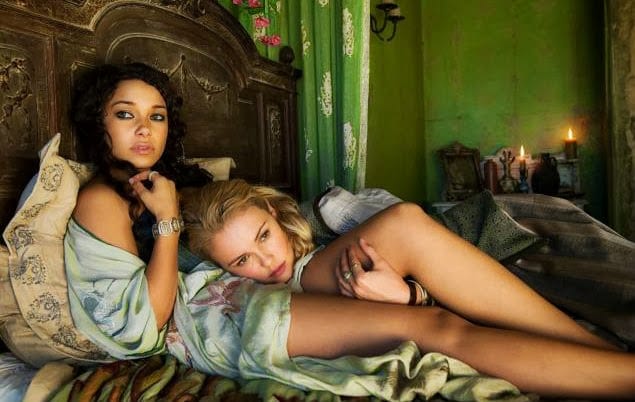
Captain Flint also has a girlfriend, and she’s awesome. I mean, she’s got little kids throwing things at her and calling her a “witch”, so she has to be doing something right. But basically Miranda sits around putting on this performance of proper-ness, while she fucks her menacing pirate boyfriend, plots murders, and picks fights with the local pastor about how ridiculous the stuff he’s preaching is. She also has a Tragic Backstory™ and a desire to join the “Finer Things Club” or something.
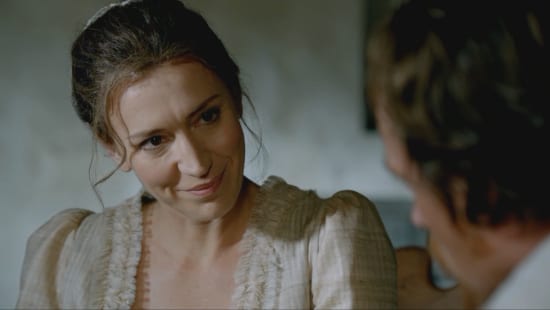
And really, that’s about it. The main plot of the first season is that Flint wants to go after some treasure, Eleanor wants to invest in his plan to do so, Charles Vane wants everyone to know how tough he is, and Miranda wants mysterious Miranda-things. Then there’s issues of loyalty with Flint’s crew, such as Billy Bones learning disturbing things about him, and John Silver finds himself in some really bad situations, but is so wonderfully wormy and charismatic that he finds ways to make it all work out.
It’s a swashbuckling journey that doesn’t pull punches from the ugly reality of the pirate lifestyle, such as on-the-spot leg amputations. It also feels realistic in every sense; you can tell that the quartermasters are pretty much all put upon with these ridiculous requests, and that if the British government gave the slightest bit of shits, everything all these people work for would be gone. Then pretty much every character we meet is so supremely flawed that you really have to wonder how it was possible to learn so much about so many different people in just eight episodes.
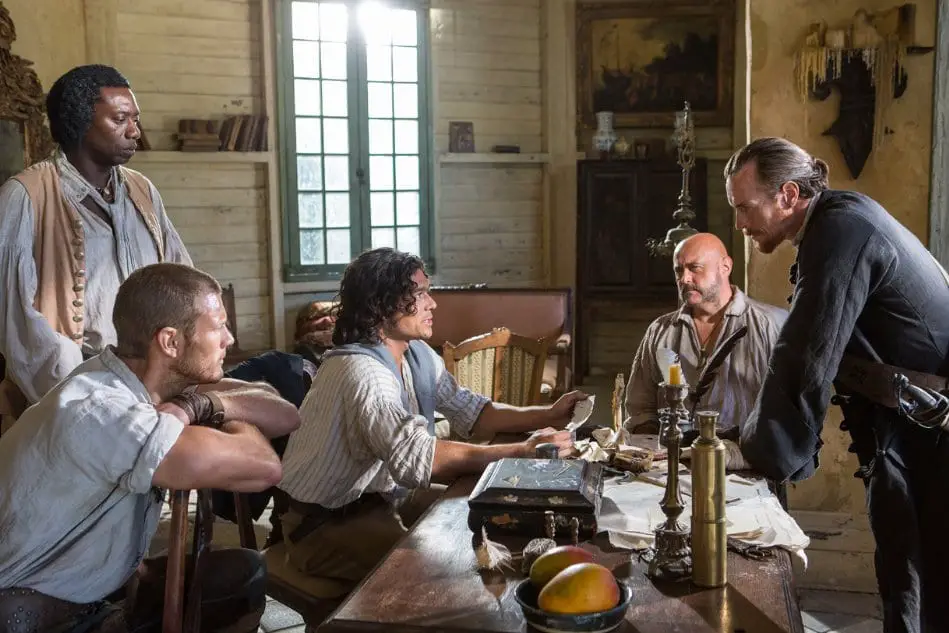
So it pains me that I can’t give its opening season complete raves. I will give it a recommendation, for sure, and I will personally stick with it, I think. But there’s a major, major stumbling block for it out of the gate that spans the season, and to be honest, it’s such a large one that I’ve second-guessed my decision to keep watching many times.
I guess this is in the spirit of owning thy problematic faves though, right? Not that Black Sails has earned such a status for me yet, but I’d like it to get there. What follows, however, will contain explicit spoilers about one subplot in the first season of the show: the rape subplot.
And yeah, call this sensationalist if you will, but it is really impossible for me, as a female viewer, to watch a subplot wholly about rape without critical thought, especially given how half my motivation for watching this in the first place was to serve as a comparison to Game of Thrones. That show, in my opinion, handles the topic in a horrifyingly superficial manner, and uses it as a cheap device to drive drama, rather than a pointed exploration of something still disturbingly prevalent, and thus quite relevant in society today.
Let me say, before we get into the nitty-gritty, Black Sails handles the subject better. Which yes, is faint praise. But it has that.
I mean, okay, in fairness, Black Sails is actually historical fiction. It’s set in the year 1715, there are real locations referenced, and half its cast is named for historical pirates. Yes, it’s a fictionalized version of our world (and these people), but my point is, there’s actually a “reality of the world” being played to, unlike the horribly inconsistent setting of Game of Thrones, which morphs and adjusts to punish and relegate women, as needed. So for that reason alone this subplot, or Max’s storyline, just cannot be quite so thoroughly offensive to me.
To give you a very brief understanding of what happens: John Silver accidentally stole a valuable piece of paper from Captain Flint. We can call it a “treasure map”, though that’s an oversimplification. Max noticed Silver’s attachment to it, and offered to help him sell it to Charles Vane. She saw the large amount of money that he would have paid as her ticket out of the brothel (and off the island too, I think). However, just before this deal was made, Flint found out who had it, and Eleanor told Max that she needed to hand it over, because Eleanor was backing Flint for his voyage. Max instead asked her girlfriend to leave with her, declaring her love and devotion, but Eleanor wouldn’t, because she might have some daddy issues and they tie specifically into what she wants to accomplish in Nassau.
So, knowing that she just fucked Max over by taking this deal off the table, Eleanor offers to protect Max from Vane, who would have blamed her for it going belly-up. But Max had kind of just been rejected/betrayed by this woman (there was the implication that Eleanor would have allowed Max to be beat up for information on where the map was if she didn’t cooperate), so she didn’t feel like hanging around her girlfriend’s digs anymore. Unfortunately, Max gets caught trying to escape the island and becomes a fun rape toy for Vane’s crew.
Eleanor finds this out and stops Max from being attacked one night, then tries to get Max to go with her, but not before blacklisting all of Vane’s crew from doing business with her. Max was like, “no I need to pay off my debt to Vane” (?) and stays behind, though to be fair it’s possible that Eleanor was using Max’s gang-rape to her own advantage, trying to sway most of Vane’s crew to join Flint, and not just acting from righteous indignation. Not that she wasn’t also really, really pissed.
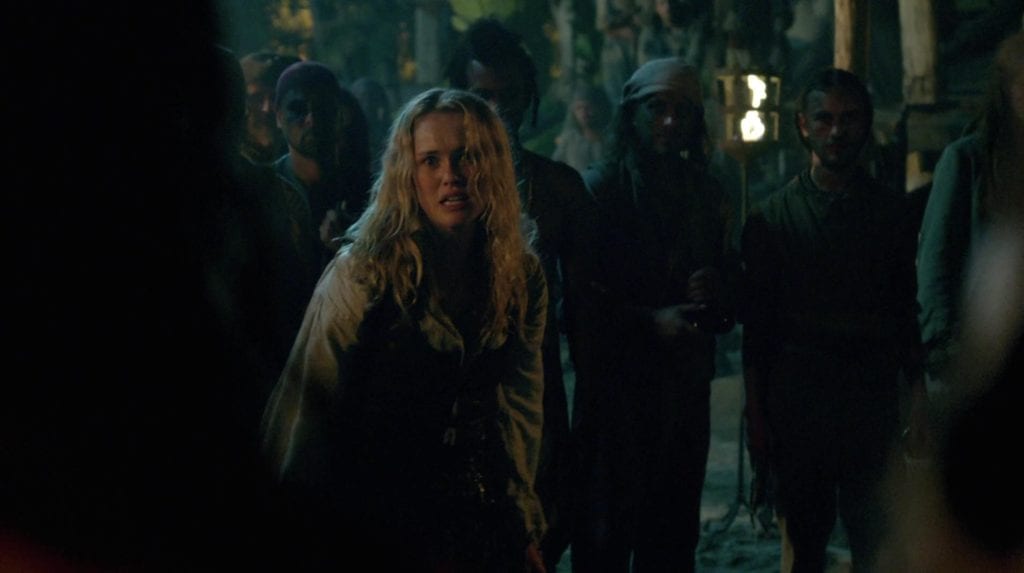
So of the few people that chose to stick by Vane, a handful keep on raping and hurting Max, and according to Jack Rackham, that’s the only thing that’s even keeping them loyal (??). However, Anne Bonny doesn’t like this at all. She ends up forming an alliance with Eleanor, and they plan a fun murder session for the dudes harming Max. Then Max goes back to the brothel, takes a nap, and wakes up the next day to learn about how bad Jack Rackham is at running the place (he’s the new owner). So she decides it’s really important to make sure all of her colleagues are paying Jack their full wages rather than pocketing some. Then he makes her Madam. Then the season ends.
I’m simplifying a lot, and I don’t want to make it sound like it was unrealistic, because it wasn’t. However, whether there was the need for this subplot at all is what concerns me the most. I really struggle with how to explain my discomfort, because I don’t like the argument “this wasn’t the story I wanted.” This is the story that was on our screens, and it was clearly meant to be challenging. It also did drive the plot, but…was this the device that needed to do so? Or at least this specific framing of it?
The reason I lean towards “no” is that there’s two elements in how it was handled that I find to be both unsuccessful and uncomfortable. One is the fact that Max’s own response to this trauma takes a backseat to basically every other character reacting to it. It’s not that we don’t necessarily see Max affected, or that we don’t understand where she’s coming from when she acts in a certain way; it’s that what was prioritized, at least from what I could tell, was how Eleanor and Anne both reacted to her suffering.
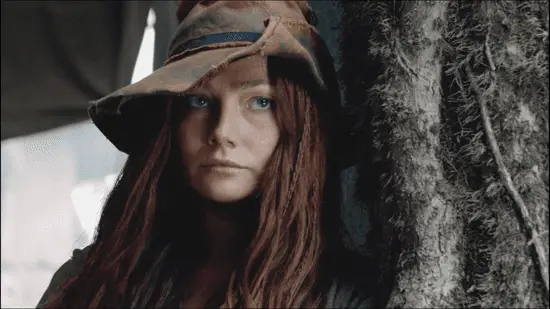
Which in a way might have been to a point? There was very consciously a choice made for this subplot to focus on women’s place in the world and the different ways in which they conceptualize survival and agency. While captive, we see Max’s attempts to mitigate the abuses she faces by appealing to her attackers’ senses of humanity, hoping to demonstrate the value of treating her “gently.” Though…this doesn’t work overall—at least not in comparison to Anne’s sure-fire tactic of castrating anyone who makes unwanted sexual advances that she tells Max about.
Which that isn’t supposed to sit right either, I know; Anne is a deeply troubled person. We also see the way she views rape (or at least ongoing rape/abuse) as a special kind of evil and a fate worse than death, explaining to Max that the only reason she was willing to her and bring her to Vane in the first place was because she had assumed he’d “just” kill her. And then we have Eleanor, of course, who fought everyone off and made a grand moral stand (that conveniently served her own purposes), only to try and ignore the situation along with her guilt, until Anne shamed her into action.
So I do have to appreciate, at least on some level, the obvious effort to really dig deep at such a gendered issue through the perspective of women. Yet at the same time, this became so much more about “will Eleanor sacrifice the personal for the political” and “when will Anne finally snap and save Max” rather than “hey, how does Max feel?”
Also how does Max feel? I get why she might want to not deal with thinking about anything that happened, thus explicitly addressing it for the audience would be a challenge on some level. Like, the episode after she’s saved, we get one shot of her not seeming too keen to work right away, while a colleague accuses her of voodoo and tells her that she should get back into the game sooner than later since they’re all stealing wages from Rackham blind and the “getting’s good”. Then Max’s very next scene is her throwing that colleague under the bus in front of Jack to get in his good graces. Yes, she is ambitious, but even if she somehow saw the pathway to becoming Madam at that point, she’s really ready to immediately set this plan into motion?
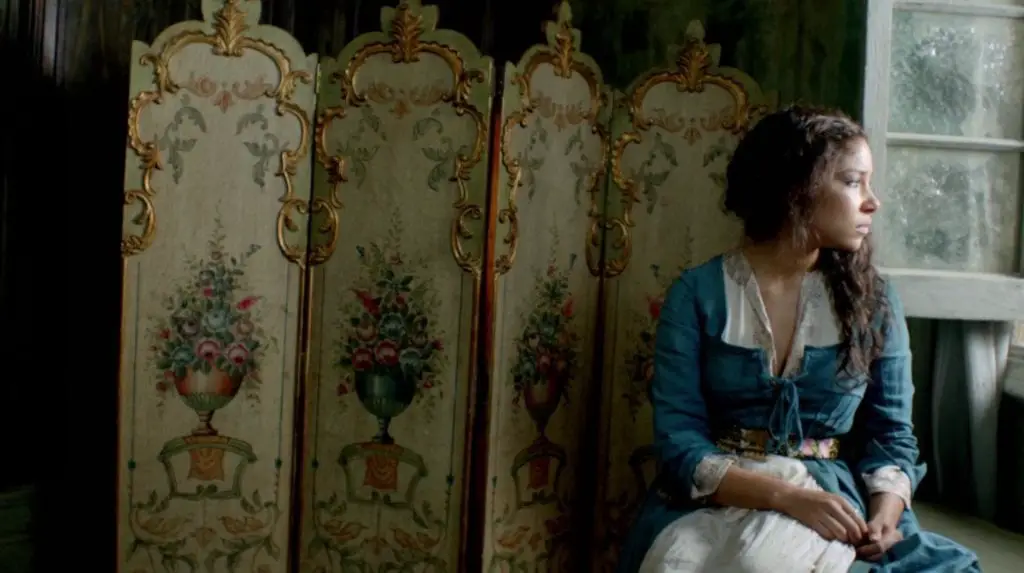
It just feels like the focus was placed on the wrong women. Which isn’t too comfortable when you consider the fact that both Anne and Eleanor are white, and they’re the women who get the story, not Max. There’s definitely the set-up for Max to have a ton of narrative space moving forward, but with a character who’s a woman of color, a sex worker, and a survivor, having her own trauma take a backseat to two white women’s egos really pushes into the territory of unacceptable.
Plus even the whole gendered commentary itself gets really muddied when we learn about Anne’s burgeoning attraction to Max (at least I’m assuming that’s what’s going on here), which given her anger, I have to think is a sexual predilection that’s been previously unexplored. But does that mean we’re supposed to view her actions to save Max in a more cynical light? If so, does that even detract from the rescue, as well as the exploration they were going for? I’m a little confused where I fall on this, to be honest, even if bisexual Anne Bonny is the only Anne Bonny.
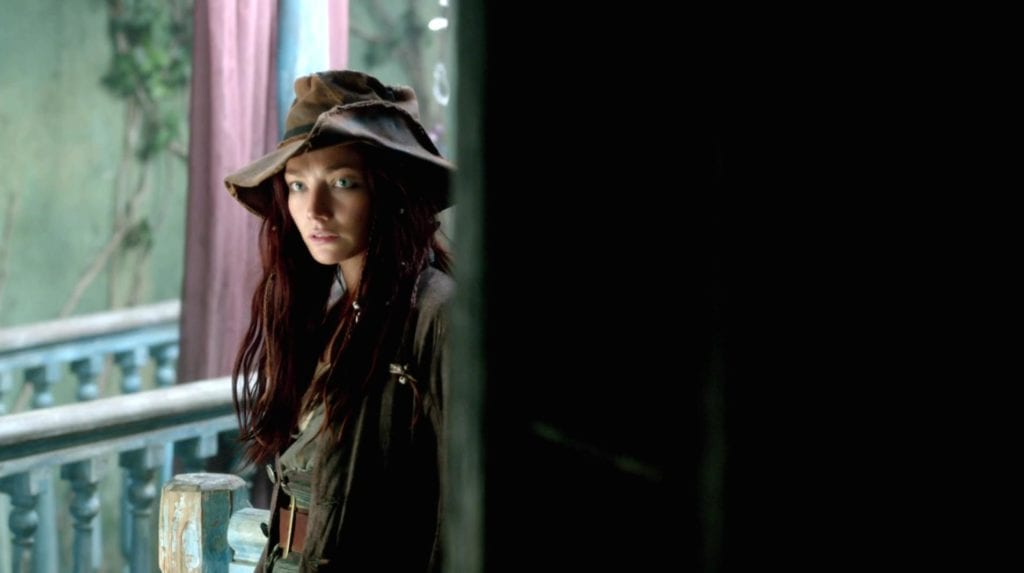
Where I’m not confused, however, is the second area of my discomfort: the contrivances surrounding this situation coupled with the low-key victim-blaming narrative. Like, yes, Max was spurned by Eleanor, and she so clearly wants a life beyond being a sex worker under Noonan. So it kind of makes sense why she’d sneak out, especially when we were probably supposed to view this as self-destructive behavior. But then the issue becomes the fact that the sheer amount of risk involved, coupled with the number of people yelling at Max for having refused Eleanor’s protection… There’s no part of me that blames Max, obviously, but the fact is, “she could have been safe and chose not to be” is drilled into our head so much, even by fucking Charles Vane himself, that the victim-blaming attitude is somewhat framed as the most reasonable.
This is only doubled-down on when Max elects to stay with Vane after Eleanor beats off her attackers because…? I still don’t know. She feels guilty about the page’s sale going south, even though that was not on her in the slightest? She just really didn’t want to give Eleanor the satisfaction? This is how she processes rejection? I mentioned that “debt” that needs to be paid, which sounds like it’s about the map, but then when Anne saves her there’s no similar objection raised. Though of course that rescue is not before Anne yells at hear for electing to stay as well. Yay.
“Max chose [to stay in Vane’s camp]. Why? I don’t know. Maybe it was spite, maybe it was strength, maybe it was who the fuck knows what. To be perfectly honest, I don’t care, because the moment I start making choices based on her decisions, I’ve given her a hell of a lot more power over my life than I am quite comfortable ceding to a perfect stranger.” —John Silver with strikingly meta commentary
Is it even worth mentioning the part where Max tells Eleanor “you did this to me”? It was to hurt her, I think we know this. But good gods, even though the narrative eventually had the right idea in who to blame for this (hence Anne’s little murder party), did we need to continually be reminded that had Eleanor or Max behaved in slightly different ways, this wouldn’t have taken place at all?
It’s difficult to call this “gratuitous,” I will say that, mostly because I really can’t see how the subplot would have worked through other means, particularly where Anne is concerned. But “justified” feels like just as much of a stretch, especially so early on in a show when we don’t have the best grasp of these characters. I can assume Max is hyper-ambitious, lacks self-worth, and heavily internalizes guilt, and I don’t think I’m necessarily wrong, but seeing as we had like, three scenes to establish that before her capture, the commentary on her response to this situation is significantly lesser than it both could and should be. And call me old-fashioned, but I really think the ongoing gang rape and brutalization of someone should be about, you know, that person first and foremost.
My hopes are that Max is accorded a good deal more narrative space moving forward, though for some reason I feel like I’m in decent hands. I can’t explain it other than that it was clear there was at least an attempt to make this plotline mean something. I have my own opinion on its effectiveness, and there’s certainly unfortunate implications, but sometimes putting in the effort really does count. Now if they can just learn how to channel it, it’ll be smooth sailing.
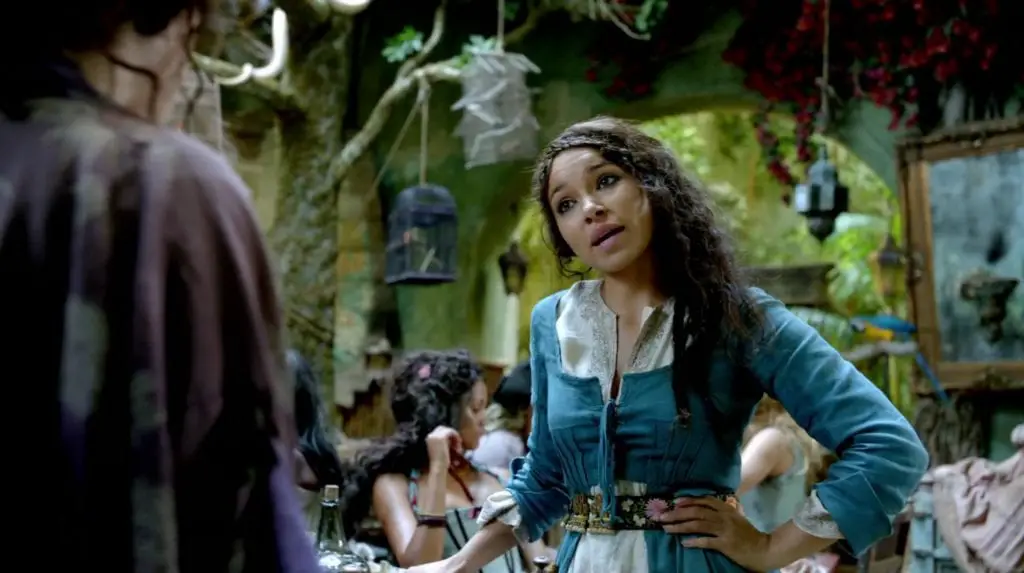
Images courtesy of Starz

